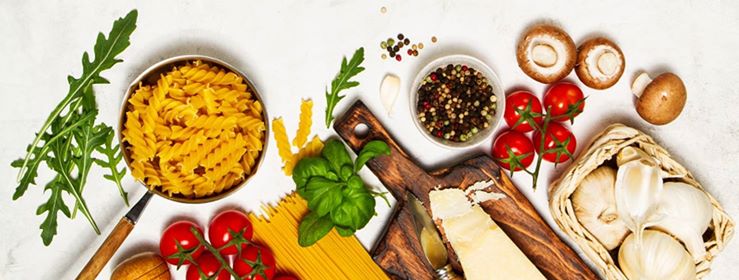Mothers’ Stories
Organic Foods: Are they really better for your family?

You may have started or are planning to start buying organic foods for you and your family. You may think that organic foods are much healthier, more environmentally friendly or better-tasting than those that aren't. Those are the same reasons that drive millions of people all around the globe to buy organic foods. But are organic foods really all those things? In this article, I will discuss the latest studies and reports regarding organic foods.
What is organic food?
These are products that are grown or manufactured following specific and strict standards. Some of which are that:
-
Synthetic pesticides and fertilizers are not used in the production of organic foods.
Sewage sludge is not used in fertilizing the land of organic products. -
The machines and agricultural lands used to grow organic crops are not exposed directly to synthetic chemicals for at least the past three years.
-
Animals of organic farms are fed organic feed.
These animals have access to the outdoors and grass to graze. No unnecessary antibiotics and hormones get administrated to these animals.
Why are organic products more expensive than regular products?
Many reasons that explain the different costs between the two types of products:
-
The synthetic pesticides used in traditional farms are more efficient in getting rid of weeds and harmful fungi.
Whereas, in organic farms, this requires more labour and more organic pesticides. -
Fertilizers based on animal manure that gets used in organic farming are more expensive than sewage sludge.
-
Animals in organic farms have better living conditions, which means an increase in the cost of their care.
-
Obtaining an “organic certification” is not an easy task.
It requires lots of monitoring, tracking and drastic changes in the production to comply with the standards to obtain and maintain the certificate.
Are organic foods are richer in nutrients compared to regular foods?
Yes and no. Available studies have contradictory results. Many of the recent studies show that there is no significant difference between the nutritional content of conventional foods and organic foods. An analysis of more than 200 studies concluded that we could not confirm that organic products are better. However, a few studies found that organic produce has more vitamin C, Zinc and Iron than conventional produce. According to those studies, antioxidants in organic produce can be up to 69% higher. Other studies have shown that organic foods have fewer Nitrites (chemical compounds that can cause cell damage); and meat and dairy products have more Omega-3 and less saturated fats. So, for now, it is difficult to determine 100% sure that organic foods are more nutritious as the studies are still not yet conclusive.
Organic foods are pesticide-free which makes them healthier.
Synthetic pesticides are known to be bad for one's health and the environment, and the produce that we buy at the market might have some residue of those pesticides. However, many studies have shown that the amount of pesticide residues in the produce we consume is too little to cause any adverse health effects. In the end, whether we choose to believe these studies or not, it is better if we all were to avoid consuming pesticides. In the case of organic crops, organic pesticides get used; and that itself is a double-edged sword. Some studies have stated that having organic products may reduce our exposure to pesticides. But as most of the pesticides are derived from natural sources, there are not enough studies conducted to understand the long-term effect of these pesticides. As organic pesticides are less effective than synthetic ones, more of them are needed to be used to have the same effect. Unfortunately, assuming that they are safe is the main reason why there haven't been many studies about it. Will the excessive use of organic pesticides cause a build-up in the soil and water? The answers are still unclear. Moreover, there are certain types of pesticides that are allowed to be used in organic farming, even though they are as bad as synthetic ones. And there are a few studies that have shown that some organic pesticides kill insects that are beneficial for plants.
Animals in organic farms have better living conditions than traditional farms.
If you care about the environment and animal welfare, this might drive you to choose organic foods. It is undeniable that animals in organic farms have a better life quality, as they have more access to the outdoors and physical exercise. Whereas animals in traditional farms sometimes spend their whole lifetime indoors or in cages. Animals in organic farms also get to graze on grass. Whereas in traditional farms, they are fed corn to increase their body mass rapidly; however, this harms their digestive system. But that does not mean that organic farms still don't have their major fallbacks. Cows in organic farms, like in traditional farms, are still artificially inseminated all year long to ensure that they produce milk constantly. And they get separated from their calves minutes after their birth which causes these animals stress. Furthermore, although animals are all required to spend time outdoors, they are still kept indoors on many farms. A report by The Washington Post mentioned that many of the farms don’t follow those standards. And many animals are not given any access to the outdoors.
Organic foods are produced from all-organic ingredients.
Not necessarily. The FDA has a list of non-organic ingredients that can be used in foods labelled as organic. Products that are labelled as “organic” have 95% organic ingredients. Products labelled as “made with organic” have 70% organic ingredients.
Organic foods cannot be bad for your health.
If all the ingredients are organic, this doesn’t mean that they are healthy. Foods like potato chips, biscuits and sweets are still full of sugar, added fats and salt. So, if you are keeping an eye out for your weight, you should still stay away from them. Choosing whether or not you should switch to organic foods is not an easy decision. There is no clear answer; it is a personal decision based on your principles and evaluation of what is best for you and your family.
References:
- "Are organic foods safer or healthier than conventional alternatives?: a systematic review." Smith-Spangler C, Brandeau ML, Hunter GE, Bavinger JC, Pearson M, Eschbach PJ, Sundaram V, Liu H, Schirmer P, Stave C, Olkin I, Bravata DM, 4 Sep 2012, Ann Intern Med, https://www.ncbi.nlm.nih.gov/pubmed/22944875
- "Nutritional quality of organic foods: a systematic review." Dangour AD1, Dodhia SK, Hayter A, Allen E, Lock K, Uauy R Sep 2009, Am J Clin Nutr, https://www.ncbi.nlm.nih.gov/pubmed/19640946
- "Why your ‘organic’ milk may not be organic," Peter Whoriskey, the Washington Post, 1 May 2017, https://www.washingtonpost.com/business/economy/why-your-organic-milk-may-not-be-organic/2017/05/01/708ce5bc-ed76-11e6-9662-6eedf1627882_story.html?utm_term=.7a75277e537f
- "What is organic food, and is it better than non-organic?" Mary Jane Brown, 17 Aug 2016, Authority Nutrition, https://authoritynutrition.com/what-is-organic-food/
- "Are Organic Dairy Cows Actually Happier?" Kate Good, 5 May 2014, One Green Planet, http://www.onegreenplanet.org/animalsandnature/are-organic-dairy-cows-actually-happier/
- "The national list of allowed and prohibited substances," Electronic Code of Federal Regulations, 25 May 2017, US Government Publishing Office, https://www.ecfr.gov/cgi-bin/text-idx?c=ecfr&SID=9874504b6f1025eb0e6b67cadf9d3b40&rgn=div6&view=text&node=7:3.1.1.9.32.7&idno=7













